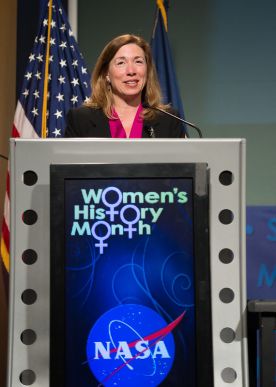March is known as Women’s History Month, which seeks to recognize and celebrate the significant contributions of women throughout the ages.
The origins of Women’s History Month dates back to 1978 when the school district of Sonoma, California, decided to hold a weeklong celebration recognizing the different ways that women have made a significant impact on all aspects of society. During this week, several schools organized presentations and wrote essays about notable women that had made important contributions over time. From that time on, many schools found out about this women’s celebration and decided to bring it to their communities. In just a few short years, this week-long celebration could be seen across the country.
The desire to celebrate women during this period in March led to Congress passing Pub. L. 97-28, which declared that the week of March 7, 1982 would be known as “Women’s History Week.” For the next several years, Congress continued to support this initiative and formally set aside a week in March to commemorate women’s history. In 1987, the National Women’s History Project petitioned as a way to convince Congress to pass a resolution that would designate the entire month of March as “Women’s History Month.” This motion, along with several others issued by the president, passed and officially recognized March as Women’s History Month. Since then, March has continued to be an important time to recognize and celebrate the contributions of women over time.
Women’s History Month has remained an integral part of remembering those women who have contributed greatly to our society. Each year, The National Women’s History Alliance selects a theme for Women’s History Month. For 2021, the theme is entitled “Valiant Women of the Vote: Refusing to Be Silenced.” This theme is intended to commemorate the 100th anniversary of women’s right to vote. During this time, the National Women’s History Alliance is showcasing the different contributions to this movement.

Colleges and universities around the country are recognizing this month in a variety of ways. At Cabrini, there are a number of presentations and celebrations, such as the Women’s History Month Common Hour, that sought to raise awareness and celebrate the great women who were essential to the early days of Cabrini.
When asked about the importance of recognizing Women’s History Month, Dr. Nancy Watterson, professor of american studies in the department of history and political science at Cabrini shared her thoughts.
“Anyone concerned about equity and inclusion would see the value in these month-long celebrations meant to spotlight contributions about populations too-often overlooked in ‘public narratives,’ to cite renowned activist Marshall Ganz’s use of the concept,” Watterson said.
These celebrations seek to highlight women throughout history whose impact may not be fully understood by those living today. By acknowledging the work done by these women and the progress that has been made over time, it helps to raise awareness of their contributions.
“We bring to the fore the incredible contributions women have made–and continue to make–in so many and diverse contexts. Through these acts of ‘naming’ and “‘e-framing,’ each of us can help to improve conditions now, and in the future, by revealing ‘hidden transcripts’ and creating a different discourse,” Watterson said.

Those leading the Women’s History Month celebrations and programs continue to introduce new topics that highlight different women throughout history in all aspects of society. The new theme each year provides a unique way of looking at the accomplishments of women and the impact on modern society.
“Cultural history is dynamic and ever-changing, not some fixed or static entity, and global in scope, so it is imperative we educate ourselves about challenges and opportunities people face worldwide, including gender inequities of diverse types and in diverse settings. ‘An equal world is an enabled world,’ as the idea is put so aptly by the International Women’s Day (IWD) movement #EachforEqual,” Watterson said.
Women’s History Month continues to play an important role in highlighting the contributions of women through history so that people can learn from past accomplishments and utilize this information to continue to make progress on important issues in the future.


